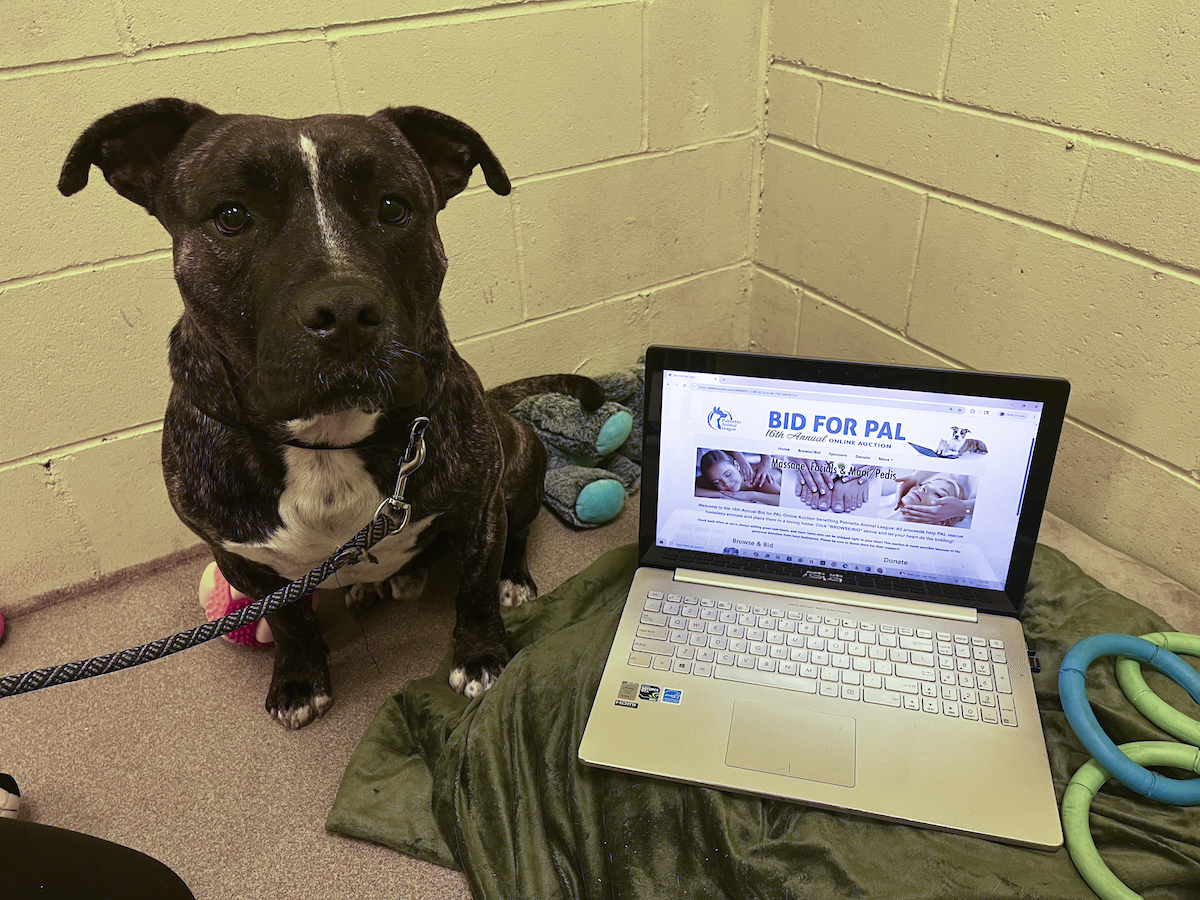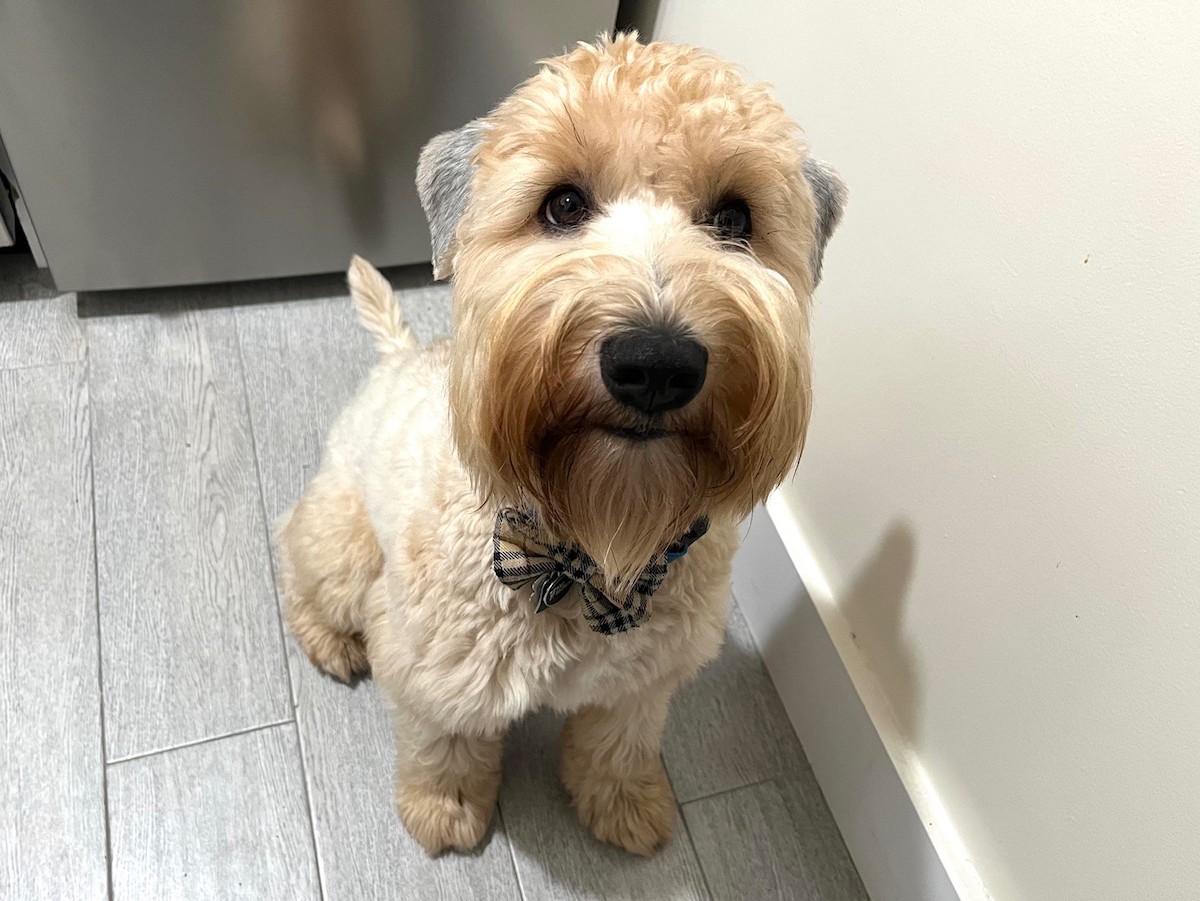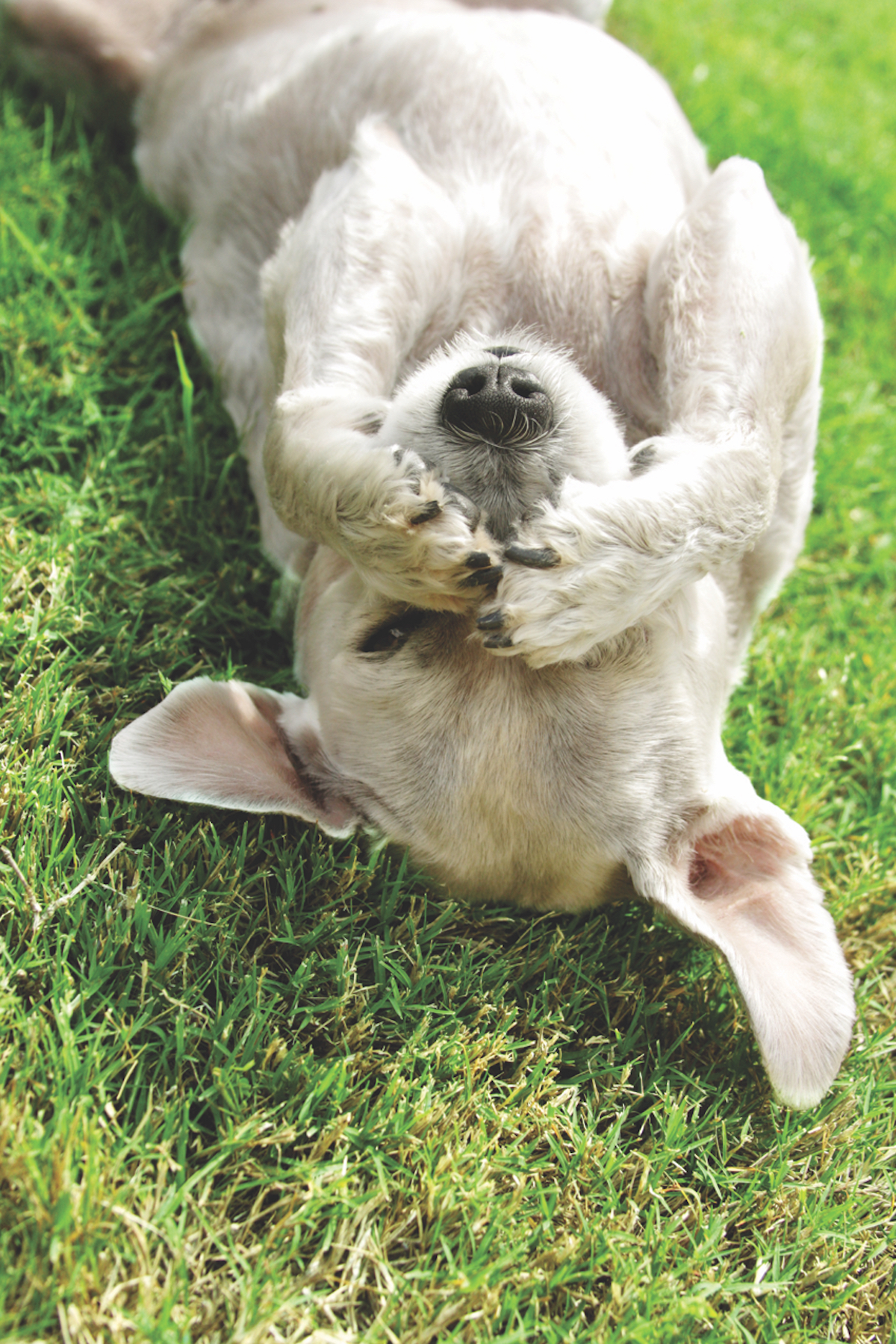By Tracie Korol
Simply put, if your dog is overweight it is eating more calories than it needs. Set all excuses aside — excessive weight in an otherwise healthy pet is a direct result of consuming unnecessary amounts of food. So, how do you help your Best Friend drop a few pounds? It’s really simple: after recording an accurate pre-diet weight, reduce your dog’s daily ration by one-third. That total should include all treats, snacks, or additions. Re-weigh in two weeks. If after two weeks you find that your dog has lost even a little weight, you’re on the right track — keep up this schedule! If no weight loss is evident, again reduce his/her food intake by one-third and re-weigh in two weeks.
Given that you are already feeding your dog a balanced, healthy diet, feeding less is not going to change anything other than his weight. Healthy dogs do not necessarily need to eat every day, contrary to how the pet food industry has painted the picture for us of the “eager eater.” Most overweight or obese dogs have slow metabolisms. They simply don’t burn off those calories very fast and, in fact, don’t generally have “eager eater” appetites. Because of this slow metabolism, though, they don’t require very much so “just a little extra” will make a big difference over a period of time.
Resist the temptation to put your buddy on a special, and usually more expensive “diet” kibble for your convenience. These diets have very restricted fat levels to reduce the calories but by necessity have increased the carbohydrate percentages. This increased carbohydrate stimulates additional insulin secretion, which tells the body to store unused calories as fat. As such, there are some dogs that actually gain weight on “reduced calorie” weight loss diets. As my mom, the dietician, points out, it’s usually fat people who are drinking the diet sodas. She’s right.
Just to give you an idea of what is actually in a “lite” kibble, here are the top ingredients in the most prescribed diet dog food: ground whole grain corn, soybean mill run, chicken by-product meal, powdered cellulose, corn gluten meal, soybean meal, chicken liver flavor, soybean oil, lactic acid … and so on into the endless list of things we can’t pronounce, anyway. (Soybean mill run is composed of soybean hulls and such bean meats that stick to the hulls; chicken by-product meal is dried oogly bits once the good stuff is removed; transparent definition of powdered cellulose would be “sawdust.”) Short of the convenience and implied good-doing of offering your fat pet this stuff, know that there is absolutely nothing in this that will nourish him or help him lose weight. Avoid it.
And finally, there’s now a weight-loss drug for dogs. Really. In 2007, Pfizer presented a new drug called Slentrol, a liquid to be mixed into a dog’s food. It suppresses the animal’s appetite and interferes with the body’s ability to absorb fat. (Think Alli, the human diet drug with the interesting side effect of anal leakage.) Pfizer claims if given regularly, it can cause that animal to lose 18 percent of its weight — nearly one-fifth — in six months when used in conjunction with a diet and exercise plan. Side effects are vomiting, diarrhea and lethargy. One wonders if the drug actually works or if the animal is losing weight because it doesn’t want to eat because it feels crummy all the time. Why put your Best Friend through that?
Bottom line is that we humans are always looking for the easy way, the quick fix, the pill to make it all better right now. Your dog is fat because you made him fat. Sorry, that’s the truth. Your job as his Best Friend is to fulfill your portion of the pet/owner contract — he’ll give you his all, but in return you have to do the best you can for his health, his happiness and his well-being. Good food, not too much and a run in the woods will lead to a longer, leaner and more enjoyable life for both of you.





